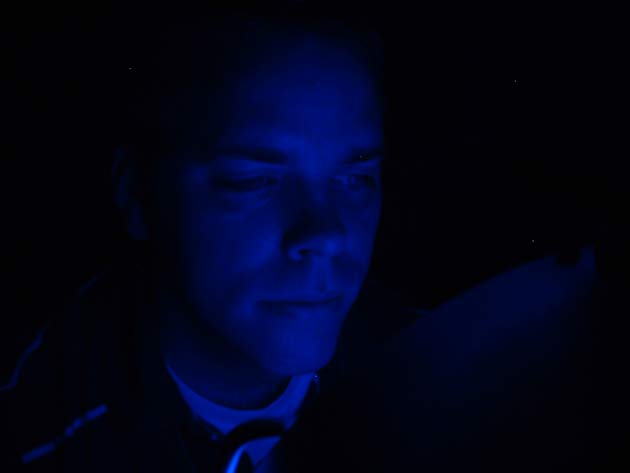Caffeine Free: Blue Light Makes People Alert at Night

There's much more than meets the eye to how we perceive light, researchers have learned in recent years. The latest revelation: blue light helps fend off drowsiness in the middle of the night.
A small study of 16 volunteers found that exposure to short-wavelength light, or blue light, perked them up immediately.
"Light exposure to this system, particularly blue light, directly reduces sleepiness,” said Steven Lockley of the Brigham and Women's Hospital. “Subjects exposed to blue light were able to sustain a high level of alertness during the night when people usually feel most sleepy, and these results suggest that light may be a powerful countermeasure for the negative effects of fatigue for people who work at night."
The study, sponsored by National Space Biomedical Research Institute, is detailed in the Feb. 1 issue of the journal Sleep.
"The effects lasted as long as the blue light was on, which was 6.5 hours," Lockley told LiveScience. "I expect it would last at least for a few hours more if we extended the light exposure for longer although not ad infinitum. We hope to do studies with longer exposures shortly."
The work adds to other evidence that the human eye sees things we're not consciously aware of. Other research has shown that the eye's hidden perceptive abilities help control our 24-hour internal clock, so we know when to sleep and when to wake.
"These findings add to the body of evidence that illustrates that there is a novel photoreceptor system that exists in the human eye in addition to that used for sight," Lockley said.
Sign up for the Live Science daily newsletter now
Get the world’s most fascinating discoveries delivered straight to your inbox.
Eventually the finding could lead to ways to improve alertness in nighttime drivers, shift workers, pilots or astronauts, said Lockley, who is also an Assistant Professor at Harvard Medical School.
More work needs to be done, however. Blue light in the wrong doses can be dangerous to the eye.










